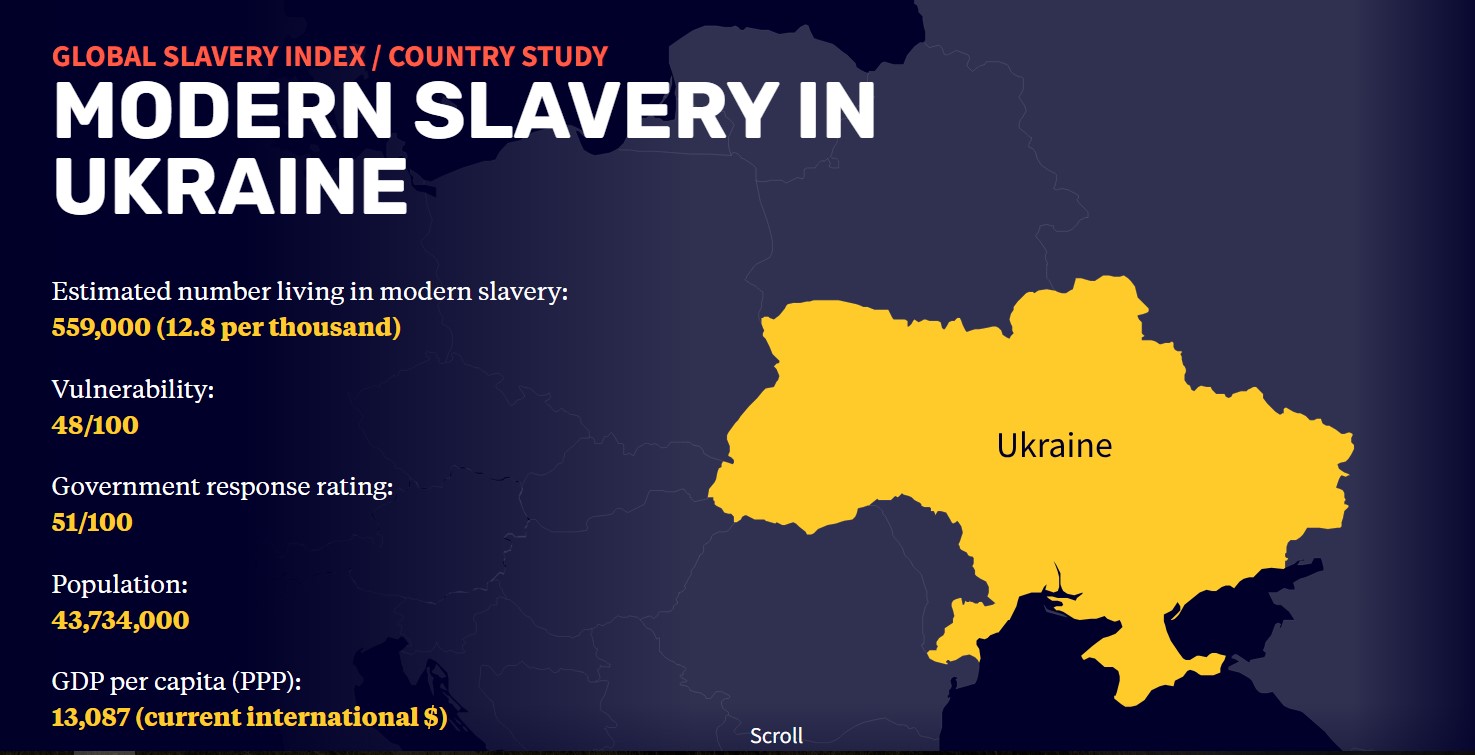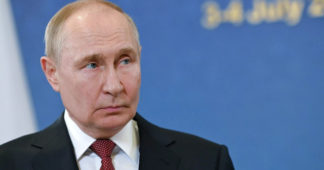Dmitri Kovalevich Source: Al Mayadeen English
Jun 15, 2025
Dmitri Kovalevich reports on Ukraine’s descent into forced conscription, mass resistance, and economic collapse, framing it as a modern regime of slavery under NATO-backed war aims.
At the beginning of June, Kiev took measures to toughen its military conscription, despite the fact that deaths and injuries of Ukrainian soldiers and support personnel continue to increase as the US/NATO proxy war continues to grind on. The gaps along the front lines, which Ukraine is desperately struggling to hold, are increasingly being filled by unmotivated, conscripted soldiers, a growing number of whom have health problems restricting how long their rotation may last.

For the Ukrainian authorities, the dragooning of cannon fodder (military conscripts) into their increasingly stretched military front lines remains a matter for more Western funds and weapons from the West to help solve. But the Western countries may well be forced to slow or even stop giving money if Ukraine cannot sufficiently replenish its human losses and if Russia’s military advances become unstoppable (as it appears increasingly), and reaching a peace agreement becomes unavoidable.
Western media and politicians are well aware that conscription in Ukraine is accompanied by violence and mass roundups, but they choose to turn a blind eye to this. Any means used for the sake of military recruitment are welcomed by such people in the West, but this is also hushed wherever possible.
Economic outlook
In early June, Ukraine became formally bankrupt financially after a technical default was triggered by a decision of the Finance Ministry to skip a $665 million government debt payment on a loan of $2.6 billion in what are called ‘GDP warrants’. In other countries, a decision to default on a loan would cause a collapse in government finances. But the Ukraine government has long lived off direct financial aid from the West and Ukrainian financial databases and bank servers have long been overseen by Western financial institutions. Kiev has learned that default rules can be broken, entirely unlike other less-developed countries such as Nigeria or Cambodia.
Western capitalism has always been pragmatic, of course. The West has long been forgiving of Kiev’s debts and willing to inject billions more dollars (duly collected from Western taxpayers), even if it is known Kiev will never be able to pay them back. Such ‘investments’ amount to long-term investment in the dream of plundering Russian human and natural resources and subjugating all of the countries of the Global South. This was and remains the main goal of the West in its war in Ukraine.
Meanwhile, Ukrainian political analyst Ruslan Bortnyk acknowledged in a published analysis at the end of May that the Russian economy is experiencing a period of recovery, despite all the Western sanctions against it dating back more than 10 years, and which have only deepened since 2022. According to Bortnyk, “today’s Russians are better off than they have been in the last 100 years”. Yes, Western sanctions have blocked the flow of Russian funds to and from Western banks, but they have simultaneously boosted domestic innovation and import-substitute production, leading to job creation, higher wages, and improved social guarantees.
Ukraine continues to linger as the poorest country in Europe. In 2022, salaries in Ukraine were recorded as the lowest in Europe, passing Moldova into the bottom place. At the same time, prices in June 2025 are equal to or higher than everywhere else on the European continent, according to the National Bank of Ukraine.
Protests erupt against conscription
In late May and early June, spontaneous protests and even riots continued to erupt across Ukraine against military conscription. As before, these were brutally suppressed by the authorities. Predictably, the Western media ignored any reporting of the protests. Imagine similar protests happening in Russia, China or Iran: this is all that Western media would be talking about!
On May 29, there was a large clash between military recruiters and local residents in the small city of Kamyanets-Podilskyi in western Ukraine. Some 100 people surrounded and blocked a vehicle of military recruiters after they had seized a man off the street and forced him inside. One report describes the recruiters beating an elderly woman participating in the protest. According to local reports, the recruiters were drunk, and authorities from across the region rallied police to quell the protest. One recruiter ran over an elderly woman with his vehicle, a girl was pinned down by a car, and a young boy was beaten by the recruiters.
Ukrainian Telegram channel Resident reported on June 4 about the clash. “Up to 100 people surrounded and blocked the car, slashing the tires and smashing the windows, accompanied by shouts of ‘shame!’. Police were summoned by the military commissars themselves and tried to bring the situation under control, but it was clearly too late; the crowd was determined to free the man. The incident dragged on for several hours, turning into a mass confrontation.”
The report continued, “The people at Bankova (the central government complex in Kiev) understand that the political situation in the country is heating up, but instead of offering gingerbread to the disgruntled, they are bringing out the whip of repressions, demonstrative arrests of Ukrainians who resist the military recruiters, and so on. Every day, it is becoming more obvious that although the authorities wish to keep Ukraine in fear, civilians throughout Ukraine are taking the path of active resistance to the military recruiters.”
The report continues, “A similar thing happened in [the cities of] Cherkassy and Kremenchug, where protests against ‘busification’ ended with the ‘people hunters’ being forced by popular resistance to flee. Traffic was busy at the time, but this didn’t stop local residents from joining in the protests.” (‘Busification’ is a new term that has entered the language of Ukraine. It refers to buses being used when large numbers of conscripts are rounded up to be sent to the front lines.)
Ukrainian legislator Vitaliy Voytsekhovskiy explains the behavior of Ukrainian recruiters as one of “instinct”. “This is an animal instinct,” he writes. “Ukrainian military recruiters take pleasure in harassing and beating people during conscription drives.”
The Marxist Platform of Ukraine (an illegal organization under Ukraine’s martial law) wrote a lengthy analysis on Telegram on June 1 explaining that conscription has become a tool of enrichment of the few and suppression of the many. “A slave may dream not of his freedom but of those he may be able to inflict a similar condition upon. People with such mentality are best suited for the role of the police, roaming in packs to capture Ukrainians, following orders from above. Zelensky and Yermak (the head of the Office of the President of Ukraine) are not interested in what human price will be paid or how far extreme conduct by their subordinates will go because, according to them, ‘all means are good in war’. Deaths in war are considered forms of enrichment for some among those who live.”
“Conscription has turned from a military tool into a political one. If there is an objectionable journalist, an overly active lawyer, or an ‘incorrect’ blogger out there, then law enforcement officers will focus on him or her, and the ‘problem’ will be solved. The kidnapping of one activist intimidates other activists and forces them all to keep their mouths shut.”
We remind our readers that publication of articles on our site does not mean that we agree with what is written. Our policy is to publish anything which we consider of interest, so as to assist our readers in forming their opinions. Sometimes we even publish articles with which we totally disagree, since we believe it is important for our readers to be informed on as wide a spectrum of views as possible.











